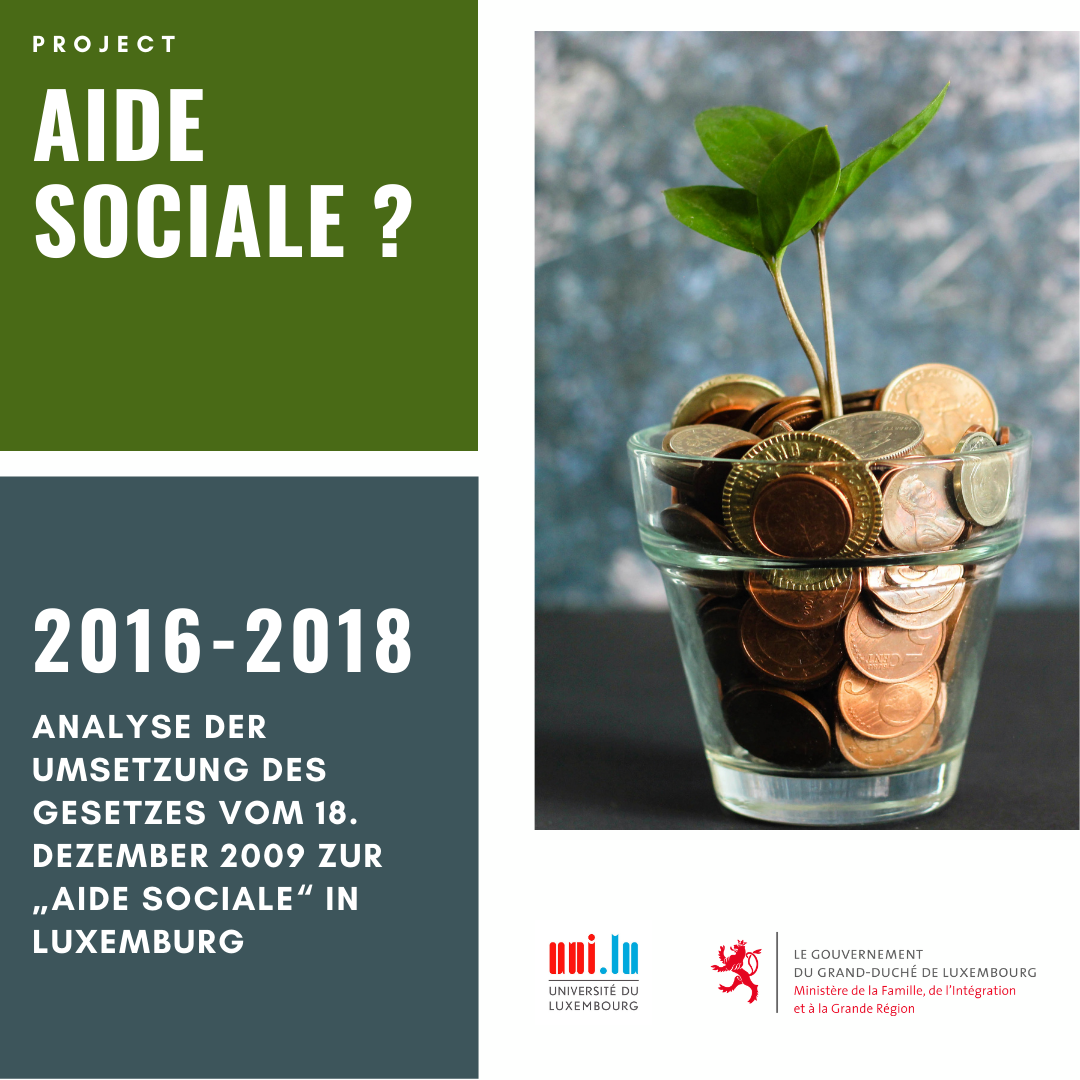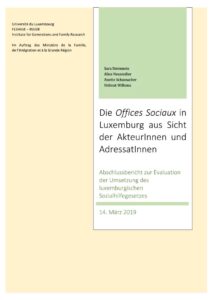Dr Anette Schumacher is a psychologist and Postdoctoral Researcher at the Centre for Childhood and Youth Research (CCY) at the University of Luxembourg.
Evaluation of Luxembourg's Social Services
The 2010 Act on the Organisation of Social Assistance was a reform of the century. How have social welfare offices, ministries and municipalities implemented the new requirements of the law? Are social assistance users also satisfied with the help they receive? The mixed-methods study conducted by the University of Luxembourg on behalf of the Ministry of the Family provides answers to all these questions.

Jump to content
Objective
With the entry into force of the law on the organisation of social assistance (“Loi du 18 décembre 2009 organisant l’aide sociale”) on 1 January 2010, which reformed the legislation of 1846 and 1897 respectively, a century-long reform was implemented. The implementation of the law has led to numerous structural and content-related innovations and thus poses challenges for the local social welfare offices as well as the ministries and municipalities involved.
The subject of this study is the analysis of the implementation of the law of 18 December 2009 on “aide sociale” in Luxembourg. The central objective is to evaluate the functioning and implementation of the law. The question of the organisation, efficiency and impact of social assistance is at the centre of the analysis.
The study examines the perspectives of several actors involved and their role in the implementation of the law. These include (1) the ministries, (2) the municipalities and (3) the social assistance providers. The focus is on analysing the functioning of the social welfare offices (e.g. application procedures, selection criteria, granting of assistance).
In addition to this institutional perspective, the views of the applicants or users of social assistance are also taken into account. In this way, the question of the impact of the assistance received on the users and their life situation is examined.
The aim of the study is to provide an up-to-date and comprehensive overview of the implementation of the law and to highlight the central challenges for the institutions involved (ministries, municipalities, agencies/administrative councils of the social welfare offices). Based on this, the study also formulates concrete recommendations for action.
Data basis and methodology
In order to do justice to the complex task defined above, this study is conceived as a mixed-methods design. Accordingly, the data on which the study is based is collected using various methods.
- Document analysis at the beginning of the study primarily serves to prepare the content and design of the qualitative interviews and the standardised survey (e.g. legal texts, activity reports, publications).
- Expert interviews with representatives of the institutions involved (ministries, municipalities, social welfare agencies, “assistants sociaux”) serve to explore the topic and reconstruct the implementation of the law from the respective institutional perspective (contrasting presentation and analysis).
- Standardised interviews with (a) staff of social services and (b) applicants and users with the help of a questionnaire serve to collect and statistically evaluate assessments and evaluations.
- Guided individual interviews with applicants or clients with the aim of collecting specific views, experiences and assessments.
- Group discussions with experts with the aim of quality assurance and validation of the results.
The expert interviews and the guided interviews will be recorded and subsequently transcribed. The interviews will be analysed using a programme for computer-assisted qualitative data analysis (atlas.ti).
The standardised survey will be conducted by means of a written questionnaire on site or an online survey. After data entry and data preparation, the data will be analysed using a statistical data analysis programme (e.g. SPSS).
The results of both the interviews and the standardised survey are correlated in terms of content with the results of the quantitative study of the IGSS.




